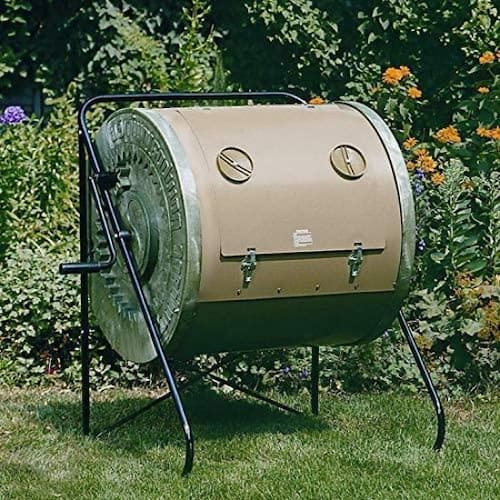Winter Composting

About Winter Composting
Can you compost in winter months? Sure you can!! Just because it’s cold and snowy outside, doesn’t mean you can’t compost vegetable scraps and other compostable materials. Enter the world of winter composting. It’s a year-round activity. No compostable materials should go to the landfill….ever.
Winter composting takes a different approach, as the decomposition process, may come to a halt, or proceed ever so slowly. So, we accumulate raw materials and store them in a composter, or even a bin or a barrel. Store it outside or in a garage or shed. Then, in the spring, we have the material we need to make a batch of compost. And, in areas where it is warm enough, we can compost inside the garage or a shed.
Here are ways you can practice composting in the winter, and reap its rewards down the road:
Method #1: Just Pile it Up
If you have a compost heap or a composter, continue to add compostable materials. You may not be able to stir it, but that’s okay. Decomposition will slowly occur over the winter and increase as spring weather warms the compost. Freezing and thawing aids the process, helping to break up the materials, just like freezing and thawing breaks up pavement, creating potholes. If you are putting compost material into a composter, do not put things into it that are wet, as too much water can freeze in the composter and damage it.
In the spring, the outside of the compost pile may look a lot like you left it. The action in the winter occurs inside of the pile. As soon as it thaws, begin to turn it over and mix the materials.
Method #2: Compost in a Building
Believe it or not, some people use enclosed composters in their garage during the winter months. It is also a common practice in sheds and barns. It is important to use an enclosed container, like a compost tumbler, or a bucket with a lid. This keeps out critters, who might find an entrance into the building.
During cold and freezing weather, there isn’t much odor, if any. As the weather warms, you may notice an odor. This is a good time to move it outdoors.
Method #3: Store It
Compost can be collected and stored for composting during the Fall-Spring months. All you need is a container with a lid. The lid will keep critters out. Fifty-five-gallon drums, and five-gallon buckets, are commonly used. Place them near the back door of the house. Bring out vegetable scraps and other compostable materials as you have them. Make sure to place the lid on tight, to keep critters away. When spring arrives, the materials in your composter will warm up, and begin to decompose. They likely have already begun to decompose.
Did You Know? Depending upon what you put into your composter, finished compost may not be pH-neutral. Test the soil from time to time. See: Compost pH and More on pH levels
Related Articles
People who like this article will also like:
More on Composting – more about the composting process.
Mushroom Compost – guess what it is made of????
Please support our site. Shop for:
- rmmatthews100@hotmail.com
- 585-721-6528
- Rochester, NY
©1999-2024 GardenersNet.Com, All Rights Reserved

